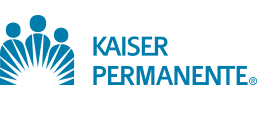During recovery from an eating disorder, communicating your needs can feel challenging. However, open dialogue with teachers, employers, and friends can ensure you get the support necessary to thrive. Here are strategies for navigating these conversations to create an understanding environment.
1. Talking to Teachers: Creating a Supportive School Environment
Returning to school after or during recovery from an eating disorder can be overwhelming. For both adolescents and parents, a collaborative approach with teachers can make the process smoother.
For Parents: How to Begin the Conversation
- Schedule a Conference: Setting up a formal meeting with your child’s teachers is a great way to discuss their recovery needs. Bringing a letter from your child’s treatment team outlining necessary accommodations can also be helpful.
- Be an Advocate: As a parent, you may need to ask for certain academic accommodations. Whether it’s flexibility with assignments or a designated quiet space, present these requests as part of a strategy to support your child’s health.
- Educate Staff: Teachers might not understand how eating disorders affect school performance. Providing them with a basic understanding of how your child’s recovery could impact focus or stress levels can help foster a supportive learning environment.
For Adolescents: Taking Responsibility for Your Well-Being
- Communicate Your Needs: Learning to speak up for yourself is an important part of recovery. Before talking to teachers, think about what you’re comfortable sharing and how they can support you.
- Explain What Helps: Be open about what accommodations or strategies might help you manage your schoolwork. For example, asking for breaks when overwhelmed is a reasonable request.
- Set Limits on What You Share: If teachers or classmates ask for more details than you’re willing to provide, it’s okay to say, “I’m focusing on my health and would prefer not to share more.”
A Joint Effort Between Parents and Adolescents
- Align Your Message: Parents and children should work together to ensure their message to teachers is unified. This will strengthen their partnership and create a clear understanding for the teachers.
- Check In Over Time: Regular follow-ups with school staff help ensure accommodations remain effective.
2. Discussing Your Recovery with Employers
Maintaining professional responsibilities while in recovery can be tough, but many employers are willing to offer support when approached correctly.
- Know Your Rights: Before discussing accommodations, be aware of legal protections like the ADA. These laws ensure you can request adjustments based on your health needs.
- Request Privacy: Have a private meeting with your manager or HR to discuss how recovery may affect your job. Focus on your commitment to work and explain any changes you need to succeed.
- Offer Solutions: Provide suggestions for accommodations, such as a flexible schedule or short breaks, to show you’re proactive about balancing work and health.
3. Opening Up to Friends About Your Recovery
Sharing your recovery journey with friends can be a vulnerable experience, but it can also lead to greater understanding and support.
- Assess Their Receptiveness: Start by opening up to those you trust most. A simple statement like, “I’m working on my health and making changes to support my recovery,” can start the conversation.
- Maintain Boundaries: If peers ask for details you’re uncomfortable sharing, politely let them know that you’d prefer to keep certain aspects private.
- Teach Them How to Be Supportive: Many friends may want to help but might not know how. Give them guidance on how they can support you, such as avoiding certain topics like diet and weight.
4. Mastering Self-Advocacy
Being your own advocate is key when communicating with others about your recovery. Knowing how to express your needs clearly and confidently can make a big difference.
- Be Clear and Compassionate: While it’s important to be direct, understand that others may not be familiar with eating disorders. A gentle approach can make conversations easier.
- Take Notes After Meetings: After speaking with teachers or employers, jot down key points and agreed-upon accommodations. This ensures clarity if the topic needs revisiting.
- Keep the Conversation Going: Recovery is ongoing, and your needs might shift over time. Regular communication helps ensure that those around you continue to provide the support you need.
Conclusion
Clear, confident communication is essential for receiving the support you need during recovery. Whether you’re talking to teachers, employers, or friends, expressing your needs in a compassionate, direct way will help you build the understanding and accommodations that are critical to your success.
Sources:
- National Eating Disorders Association. (n.d.). Eating Disorders in School: What Educators Should Know.
- The Center for Workplace Mental Health. (n.d.). Accommodations and Work Adjustments for Employees with Eating Disorders.
- U.S. Equal Employment Opportunity Commission. (n.d.). Your Employment Rights as an Individual with a Disability.








